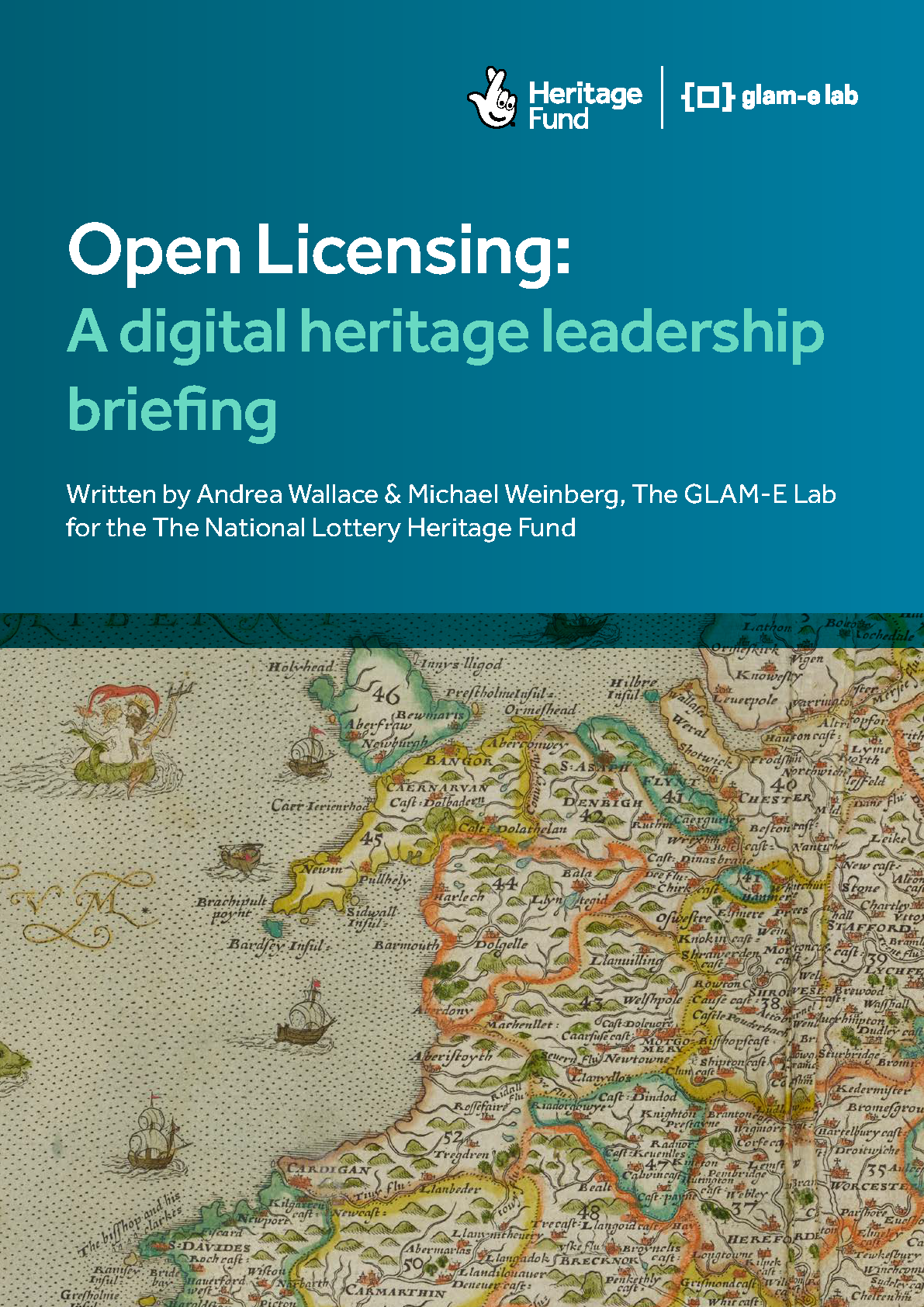Open Licensing: A Digital Heritage Leadership Briefing
Andrea Wallace, Michael Weinberg
This briefing was commissioned by The National Lottery Heritage Fund (the Heritage Fund) to provide decision makers with a snapshot of open licensing across the UK heritage sector. Please note that this guidance does not constitute legal advice.

Executive summary
Open licences are licences that provide upfront legal permissions for the public to use, distribute and build upon works protected by copyright for any purpose, and without having to seek individual permission from the rights holder. Open licences do not negate copyright or other laws. People must seek permission for uses not within a licence’s terms.
Heritage organisations around the world make use of open licences and have adopted open licensing policies. Many funders – including the Heritage Fund – require project materials and resources created as a condition of funding to be shared under an open licence.
In common with many governments around the world, the UK Government promotes the use of open licences and open data.
Open licensing can be used to increase your organisation’s reach, enhance reputation and ensure attribution, reduce costs through collaboration and development, and facilitate delivery of strategic aims and missions.
Open licensing enables the UK heritage sector to contribute to a more inclusive, sustainable and vibrant cultural landscape in the UK and globally. In addition to promoting inclusion and access, open licensing boosts reuse of digitised heritage in education, sustainable tourism, the creative sectors and environmental research. This helps the UK heritage sector also meet the Heritage Fund’s investment principles.
Globally, more than 1,600 heritage organisations have published more than 95 million digital collections through open licensing, including over 100 UK heritage organisations. Countless organisations have released open datasets, software, code and other materials for any reuse purpose.
Open licensing can help heritage organisations to develop long-term policies and programming that builds capacity, skills and expertise in heritage, and contribute to the UK’s thriving communities and creative economies, in particular SMEs.
Heritage organisations with open licensing policies have seen benefits including increased engagement, attendance, community support, new income from open access business models, and new ways of working that support mission-driven activities. Many report savings in the long term when accounting for the labour, workflows and inefficiencies required to administer services and fulfil use requests.
Open licensing can bring wider economic benefits by increased efficiency from more available and accessible materials, and new innovations from the ability to bring together information, data and insights in new ways.
